Rome, 18 October 2020
Mission Sunday

My dear confreres,
May the grace and peace of Jesus be always with us!
In the Mission Appeal Letters of the past two years, I invited all the confreres around the world to get involved in the initiative:
“To send 1% of the members of the Congregation of the Mission every year to the missions ad Gentes.” The 1% of our overall membership of around 3000 confreres comes to 30 confreres, who would go as new missionaries to the missions “ad Gentes.”
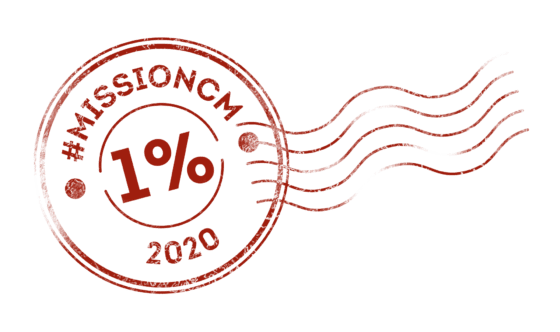 The invitation to send 1% of the confreres to the missions ad Gentes every year does not limit us to just 30 confreres each year, but is always open and carries a deep desire to surpass the mentioned number, because “the harvest is abundant, but the laborers are few.”
The invitation to send 1% of the confreres to the missions ad Gentes every year does not limit us to just 30 confreres each year, but is always open and carries a deep desire to surpass the mentioned number, because “the harvest is abundant, but the laborers are few.”
When we speak of missions ad Gentes, we do not have in mind just the International Missions that are directly accompanied by the General Curia, but also all the mission territories of the different provinces, vice-provinces, and regions.
Our Little Company is missionary by nature. Our official name, “Congregation of the Mission,” carries that seal printed in its DNA. It is the work of Providence that the name missionaries was given to us, as it came about neither by a decision of Saint Vincent de Paul himself, nor by any other confrere afterward him, but by the people themselves, the poor to whom our confreres were sent to announced the “Good News of the Kingdom.” It is, therefore, so important that this missionary spirit that shapes our Congregation be very much present and fostered in the initial stages of formation and deepened throughout our lives. In this regard, I would like to take this opportunity to encourage all the provinces, vice-provinces, regions, and missions to have ever present in the different stages of formation this missionary spirit and to urge our seminarians always to be open to the call to go to the missions ad Gentes if Providence so desires.
I would like to take this opportunity to thank deeply the many provinces, vice-provinces, and regions that are so open to encouraging confreres to go to the missions ad Gentes, to the international missions coordinated by the General Curia or to the missions coordinated by the individual provinces, vice-provinces, or regions. A few new missions coordinated directly by some provinces, vice-provinces, or regions are in the process of being opened shortly. The process has slowed down a bit, especially because of COVID-19, but hopefully will be continued soon, in order to arrive at the conclusion of the desired goal.
Because of this missionary spirit, we keep an open heart and mind to the many calls and invitations from bishops in countries where we are not yet present. Today, we are in 95 countries, but there are still so many where we are not. After hearing of the needs in a certain missionary country, receiving an invitation from a bishop of that country, praying, reflecting, and discerning, if we see a realistic possibility, we do not hesitate, but with trust in Providence, respond with a “yes” and go forward in opening the new mission.
Last year, with overwhelming joy and being very aware of Jesus’s vivid sign of mercy toward our Congregation, we reached the goal we had set for ourselves. Confreres are being sent to our different missions “ad Gentes,” some in a very short period, others in one, two, or three years, as they still have commitments to conclude before moving to a new service.
In the Mission Appeal Letters of the past two years, I also wrote that this overwhelming response will not be a true sign of a missionary spring within our Little Company if this spirit remains here and does not continue into the future. I would like to invite and encourage all of us to pray and support our confreres, who already applied or will apply to go to the missions “ad Gentes.” I would like to invite and urge you, who feel the call to go to the missions “ad Gentes” on the basis of this year’s Mission Appeal, after prayer, discernment, and discussion with your Visitor, to write to me (segreteria@cmcuria.org), volunteering to go to one of our many missions around the world that are so much in need.
This past July, we were privileged to have the visit to our General Curia community of Cardinal Luis Antonio Tagle, Prefect of the Congregation for the Evangelization of Peoples, also known as Propaganda Fide. It was a grace-filled moment when Cardinal Tagle shared with us the many needs and challenges in the missions ad Gentes. He wholeheartedly supports the 1% campaign, animating the confreres of the Congregation to volunteer for the missions ad Gentes.
Dear confreres, the sooner you write, the sooner we will be able to discuss your letter in a General Council meeting, and the sooner we will be able to respond to the many requests for help. As I mentioned in my previous letters, if you feel called to the missions ad Gentes but cannot go immediately because of present commitments where you serve, you can volunteer today, adding that you will be available in one or two years.
Here are the missions that, at this moment in 2020, need special attention and volunteers:
ALASKA
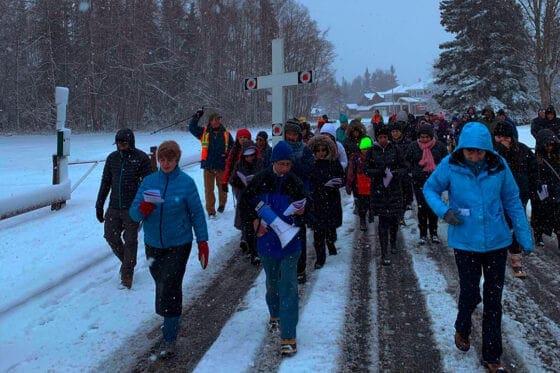 Currently three confreres serve on the mission: from the United States, Colombia, and India. The International Mission has some changes as the Archdiocese of Anchorage and the Diocese of Juneau merged on 17 September and Bishop Andrew Bellisario, CM, was installed as the new Archbishop. The mission is based in the former co-cathedral that became the Cathedral of new Archdiocese of Anchorage-Juneau on 17 September. The mission is now serving the Spanish-speaking populations in Anchorage, Wasilla, Kodiak, and Fairbanks. Soon the mission will be extended to Juneau as it comes under the same Archdiocese. The languages needed are English and Spanish. The following skills are imperative for a missionary in Alaska: the ability to drive an automobile, strong pastoral skills, and adaptability to extreme climatic conditions.
Currently three confreres serve on the mission: from the United States, Colombia, and India. The International Mission has some changes as the Archdiocese of Anchorage and the Diocese of Juneau merged on 17 September and Bishop Andrew Bellisario, CM, was installed as the new Archbishop. The mission is based in the former co-cathedral that became the Cathedral of new Archdiocese of Anchorage-Juneau on 17 September. The mission is now serving the Spanish-speaking populations in Anchorage, Wasilla, Kodiak, and Fairbanks. Soon the mission will be extended to Juneau as it comes under the same Archdiocese. The languages needed are English and Spanish. The following skills are imperative for a missionary in Alaska: the ability to drive an automobile, strong pastoral skills, and adaptability to extreme climatic conditions.
COSTA RICA
Talamanca is the most important indigenous territory in Costa Rica and is located in the southern Atlantic part of the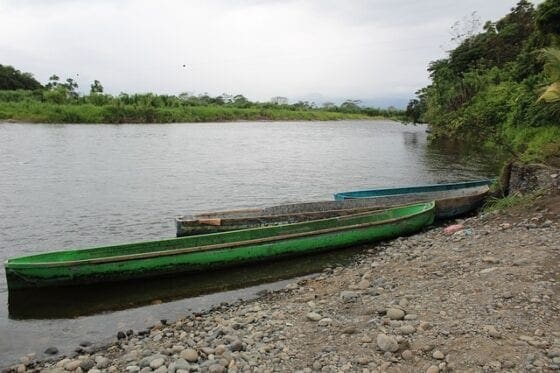 country. Since its inception, the mission has been the responsibility of the Congregation of the Mission. Missionary service has two realities: parish life, which provides pastoral care to some 54 hard-to-reach communities on a monthly basis (sailing rivers, riding motorcycles, or walking), and mission ad Gentes, where it takes up to a five-day walk through the mountains to visit hundreds of people living in miserable conditions. The indigenous languages are Bribri and Cabecar, but in most communities it is possible to communicate in Spanish. In January 2020, a missionary from the Province of Colombia joined the mission. There are three confreres at this time, but one more missionary would help to give greater attention to this vast and difficult territory.
country. Since its inception, the mission has been the responsibility of the Congregation of the Mission. Missionary service has two realities: parish life, which provides pastoral care to some 54 hard-to-reach communities on a monthly basis (sailing rivers, riding motorcycles, or walking), and mission ad Gentes, where it takes up to a five-day walk through the mountains to visit hundreds of people living in miserable conditions. The indigenous languages are Bribri and Cabecar, but in most communities it is possible to communicate in Spanish. In January 2020, a missionary from the Province of Colombia joined the mission. There are three confreres at this time, but one more missionary would help to give greater attention to this vast and difficult territory.
PANAMA
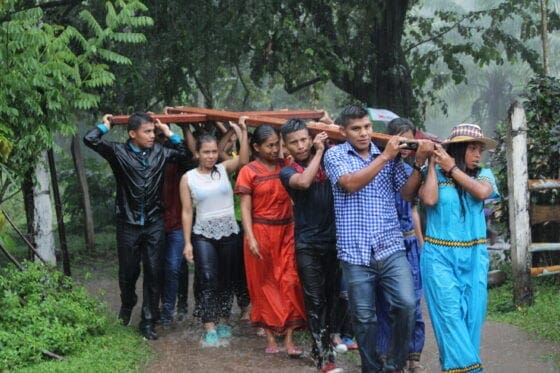 The entire region is missionary work. Of special note are the areas in the Province of Chiriquí (on the border with Costa Rica), the Region/Administrative Division of Soloy (which serves an indigenous population and where the World Indigenous Youth Gathering was held), and the Province of Colón (the mission in Escobal and the City of Colón, the poorest city in Panama). The principal mission languages are Spanish and Ngobe (an indigenous language). There is a need for a confrere in Puerto Armuelles, one in Concepción, one in Soloy, and one in Colón/Escobal for a total of four.
The entire region is missionary work. Of special note are the areas in the Province of Chiriquí (on the border with Costa Rica), the Region/Administrative Division of Soloy (which serves an indigenous population and where the World Indigenous Youth Gathering was held), and the Province of Colón (the mission in Escobal and the City of Colón, the poorest city in Panama). The principal mission languages are Spanish and Ngobe (an indigenous language). There is a need for a confrere in Puerto Armuelles, one in Concepción, one in Soloy, and one in Colón/Escobal for a total of four.
PAPUA NEW GUINEA (PNG)
PNG is considered a Christian country. It has a population of around eight million of which about 30% are Catholic. The Church in PNG is comparatively young, facing many challenges. It needs the 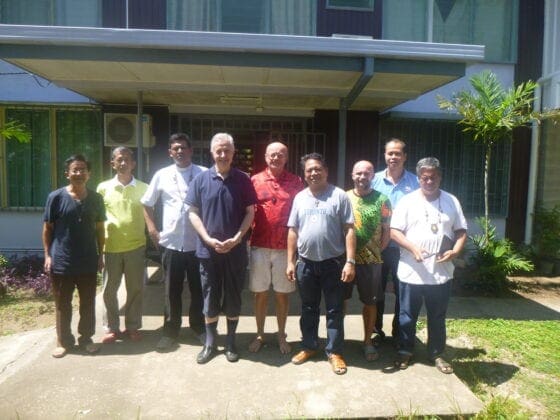 help of missionaries to grow and develop. Our mission there began in 2001. Presently, nine confreres render service to the PNG mission: two from Poland, three from the Philippines, two from Vietnam, one from Colombia, and one from the Oceania Province. Joseph Emmanuel Amith, from the Province of Chile, is set to go to the PNG mission, but because of Covid-19 restrictions, he cannot travel yet. Once he joins the mission, there will be ten confreres from six different countries serving there.
help of missionaries to grow and develop. Our mission there began in 2001. Presently, nine confreres render service to the PNG mission: two from Poland, three from the Philippines, two from Vietnam, one from Colombia, and one from the Oceania Province. Joseph Emmanuel Amith, from the Province of Chile, is set to go to the PNG mission, but because of Covid-19 restrictions, he cannot travel yet. Once he joins the mission, there will be ten confreres from six different countries serving there.
The Vincentians are engaged in several ministries: spiritual formation of the diocesan seminarians at Holy Spirit Seminary, pastoral care and laity formation, social developmental activities, and staffing the Melanesian Institute. The confreres working in PNG would like to have more members. Evangelization possibilities are many. Anyone who is committed and willing to face challenges is most welcome to join our efforts in PNG. Volunteers need to have a good command of English and should be prepared to learn the local language.
CHAD
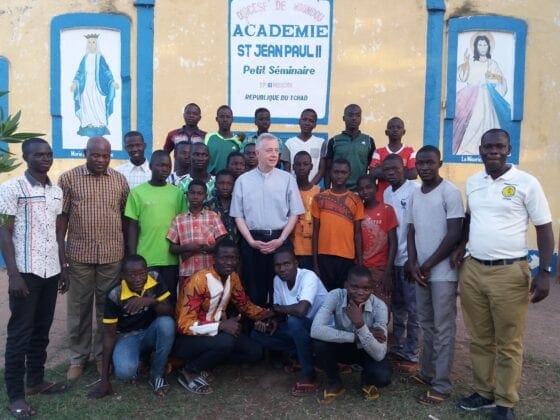 This mission began in 2011 in Bebalem, Moundou Diocese as a joint venture between the Superior General and his Council and the Visitors’ Conference of Africa-Madagascar, known as COVIAM. In 2016, the Bishop of Moundou entrusted us with the Academy Saint John Paul II Minor Seminary, suspended for a number of years, but now flourishing. In fact, this school year, 2020-2021, there will be 65 seminarians coming from throughout the Diocese of Moundou. In September 2019, this International Mission was extended to another diocese in Chad, the Archdiocese of N’Djamena. COVIAM, with the approval of the Superior General and his Council, accepted the invitation of Archbishop Edmond Djitangar of N’Djamena, mainly for his minor seminary formation at Koundoul, 20 kilometers south of N’Djamena. All in all, this international mission is doing well, but this year it is experiencing a missionary shortage. In fact, two missionaries left the international mission this year (Ambrose, after six years, and Justin, after just one year for health reasons). Léon Moninga is alone with 65 seminarians in formation at Moundou minor seminary. There is an urgent need for at least another missionary for this mission. The language is French.
This mission began in 2011 in Bebalem, Moundou Diocese as a joint venture between the Superior General and his Council and the Visitors’ Conference of Africa-Madagascar, known as COVIAM. In 2016, the Bishop of Moundou entrusted us with the Academy Saint John Paul II Minor Seminary, suspended for a number of years, but now flourishing. In fact, this school year, 2020-2021, there will be 65 seminarians coming from throughout the Diocese of Moundou. In September 2019, this International Mission was extended to another diocese in Chad, the Archdiocese of N’Djamena. COVIAM, with the approval of the Superior General and his Council, accepted the invitation of Archbishop Edmond Djitangar of N’Djamena, mainly for his minor seminary formation at Koundoul, 20 kilometers south of N’Djamena. All in all, this international mission is doing well, but this year it is experiencing a missionary shortage. In fact, two missionaries left the international mission this year (Ambrose, after six years, and Justin, after just one year for health reasons). Léon Moninga is alone with 65 seminarians in formation at Moundou minor seminary. There is an urgent need for at least another missionary for this mission. The language is French.
TUNISIA
This mission began in 2011 at La Goullette as an International Mission by the Superior General and his Council and was extended to Sousse in 2016. The mission involves pastoral work; in fact, in 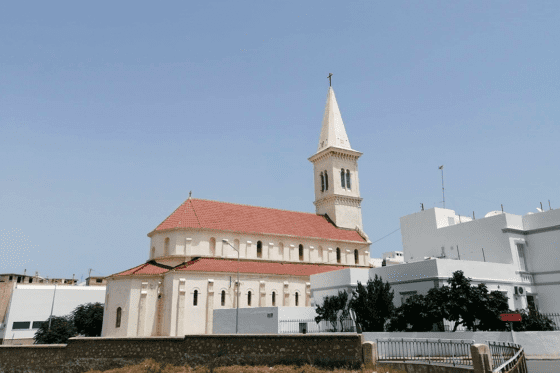 both places, we run two parishes. In addition, we take care of immigrants, sub-Saharan students in Tunisia, and chaplaincy in the prison (though it is suspended for a time). The confreres are engaged in preaching retreats and offering spiritual direction to a number of religious orders present in Tunis, the capital city. Currently there are three confreres working in these two mission places and we are short at least one missionary in La Goullette. Any volunteer is welcome to this mission. The language is French.
both places, we run two parishes. In addition, we take care of immigrants, sub-Saharan students in Tunisia, and chaplaincy in the prison (though it is suspended for a time). The confreres are engaged in preaching retreats and offering spiritual direction to a number of religious orders present in Tunis, the capital city. Currently there are three confreres working in these two mission places and we are short at least one missionary in La Goullette. Any volunteer is welcome to this mission. The language is French.
MADAGASCAR
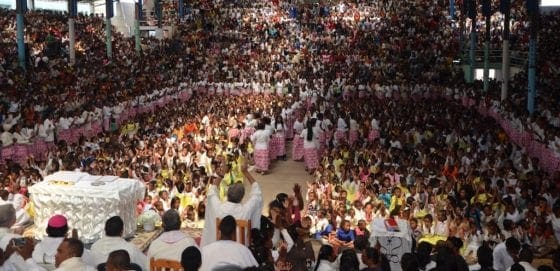 The Humanitarian Association “AKAMASOA” was founded in 1989 by Father Pedro Pablo Opeka, CM, to come to the aid of the poor people who lived on a garbage dump and on the streets of Antananarivo, the capital of Madagascar. Akamasoa, meaning “Good friends” is formed by volunteers and benefactors who help the people fight against poverty and bring them out of their unhuman conditions. With deep faith and conviction that these abandoned persons can have a hope-filled future, the volunteers and benefactors have been helping hundreds of thousands of people for the past 30 years.
The Humanitarian Association “AKAMASOA” was founded in 1989 by Father Pedro Pablo Opeka, CM, to come to the aid of the poor people who lived on a garbage dump and on the streets of Antananarivo, the capital of Madagascar. Akamasoa, meaning “Good friends” is formed by volunteers and benefactors who help the people fight against poverty and bring them out of their unhuman conditions. With deep faith and conviction that these abandoned persons can have a hope-filled future, the volunteers and benefactors have been helping hundreds of thousands of people for the past 30 years.
Aware of the enormous needs, Father Pedro asked the Province of Madagascar for support and collaboration. His wish was fulfilled on 13 February 2019 by the opening of a new community as part of Akamasoa. The needs are enormous: faith formation in general, pastoral care of the youth, accompaniment of students, visits to the many villages of Akamasoa and much more. The opening of a community in Akamasoa is a new page of the mission of the Congregation in Madagascar. The mission needs many new missionaries.
The language is Malagasy, but it is also important to have a knowledge of French.
BOLIVIA
The planned reconfiguration process has begun. Cochabamba is home to the new community. From there, the different mission fields are organized:
With great sorrow, we gave back to the Bishop the Mission of “El Alto.” He received it well and is looking for ways to continue caring for the communities that depended on us.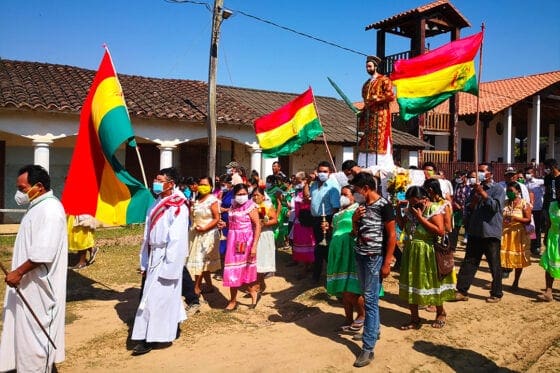
Remaining at this time are:
The “Kateri” Mission in the city of Trinidad, Beni Region. It awaits a new Bishop with whom we can make a contract for the Apostolic Vicariate. It is a difficult mission, not only because of the tropical climate, but also because of the distances and the situations in the communities. These are not usually very large, but they are very needy, because of being abandoned.
The “Huayllani” Mission in Cochabamba, which continues the work that had been established in this mission.
Of the five missionaries who were on this mission, only four remain. We are waiting for the arrival of one or two more missionaries, with the objectives of strengthening the community and being able to dedicate time to vocational and formational pastoral work. By the grace of God and the efforts of our missionaries, this mission is being consolidated gradually. The language is Spanish.
ANGOLA
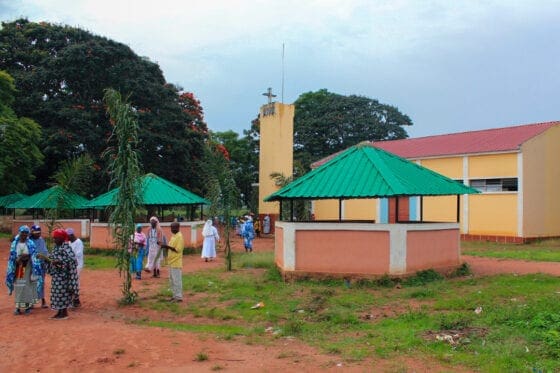 So far, it has been very difficult to form the community in the Lombé mission with sufficient staff. Of the two missionaries who were there, Alfredo Aldana died, leaving only one confrere on the mission, with the risks that this entails. The Archdiocese of Malange has been very kind in doing what it could to help, both during Father Aldana’s illness and in the aftermath of his death. We really appreciate it.
So far, it has been very difficult to form the community in the Lombé mission with sufficient staff. Of the two missionaries who were there, Alfredo Aldana died, leaving only one confrere on the mission, with the risks that this entails. The Archdiocese of Malange has been very kind in doing what it could to help, both during Father Aldana’s illness and in the aftermath of his death. We really appreciate it.
We hope that next year we will be able to send a team to resume this mission’s commitments.
As has already been shared, Lombé is a mission with a future. The mission is extensive and there is much poverty. The field of missionary work is huge. The language is Portuguese. An advantage is that the center (Lombé) has no requirements that prevent an elderly missionary from remaining in the house, while the other missionaries can open roads within the territory, which has been entrusted to our pastoral care. Pastoral visits to the various rural communities take up much of the time.
Angola is a Catholic country and can be a source of local vocations. It needs to involve laity and religious in the pastoral plan of the Archdiocese. Missionaries encourage and support the development of the Vincentian Family, whose presence in the mission is evolving well.
CUBA
The former Province of Cuba has begun its reconfiguration process and we can say that it is on the right track. At present, it is no longer a province, but is constituted (temporarily) as a Region. As is 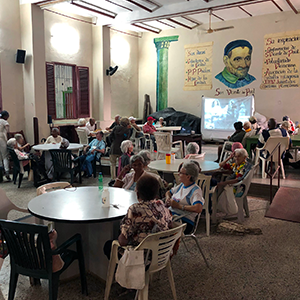 known, two missionaries have died, one young and the other, deserving and elderly. Two others returned to their home province. Fortunately, they have been replaced with the arrival of new missionaries and, “thank God,” with the ordination of two Cuban missionaries. Two or three more are expected to be ordained in the coming years. This fills us with hope and joy because it means not only the success of those who have been working in the vocational field, but also because they multiply the number of workers for the harvest.
known, two missionaries have died, one young and the other, deserving and elderly. Two others returned to their home province. Fortunately, they have been replaced with the arrival of new missionaries and, “thank God,” with the ordination of two Cuban missionaries. Two or three more are expected to be ordained in the coming years. This fills us with hope and joy because it means not only the success of those who have been working in the vocational field, but also because they multiply the number of workers for the harvest.
For the time being, the strongest concern is to find someone who could collaborate more closely in formation and vocational work. This is an area that we must strengthen in order to continue the progress on what has been achieved so far. The language is Spanish
HONDURAS
Even though three different provinces are involved in the missionary work of Honduras, we continue to pray to the Lord to send us workers. The Province of San Vicente de Paúl, Spain, has missions in La Mosquitia, in San Pedro de Sula, and in Tegucigalpa. The Province of Slovakia has a mission in Sangrelaya, which is a group of small islets between the sea and the waters of lagoons and rivers. The Province of Saragossa has the missions of Cuyamel and Puerto Cortés. We are particularly concerned with the missions of “La Mosquitia,” in the Diocese of Trujillo, where our confrere, Luis Solé Fa, is bishop. The diocese is poor in resources and poor in personnel. It is a vast territory, difficult to access, in many areas only by plane or boat, due to the inhospitable terrain. Help in this area can be a magnificent missionary experience, but above all, an authentic gesture of charity, fraternity, and dedication. The language is Spanish.
GUATEMALA
The Province of Central America has given pastoral attention to the Sayaxché Mission in an indigenous territory with different ethnicities of the Mayan culture and dialectal ramifications for many 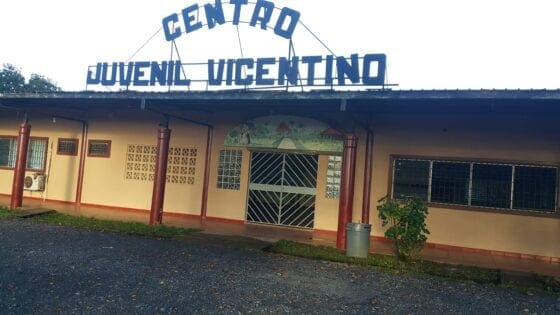 years. Two missionaries now animate the communities, but despite their apostolic zeal, they are not enough.
years. Two missionaries now animate the communities, but despite their apostolic zeal, they are not enough.
It is not an easy mission. The Petén region is a jungle area with difficult access to cities and communities in the interior, especially when it rains. The province is restructuring its ministries, but not with good omens for these missions, which are an excellent terrain for the missionary formation of its seminarians. At least two more missionaries should be sent to support such missionary and Vincentian work. The language is Spanish.
ARGENTINA
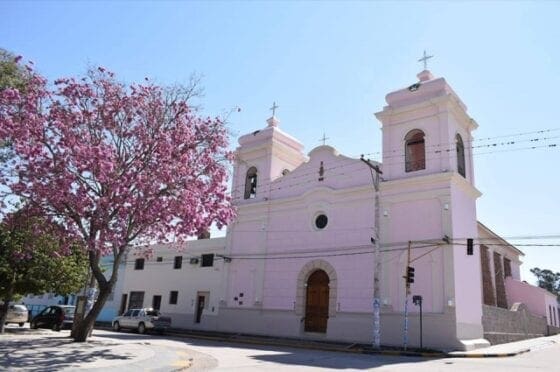 The number of members in this province does not allow it to advance on the missionary path on which it set out. The project of forming a mission team has been stopped not only by the pandemic, but also by lack of personnel. The province is collaborating with missionaries in the different needs of the Congregation, and yet it has dared to open a new community in the poorest and most needy area of Paraguay. There is no shortage of missionaries who feel called and are able to help. It is a good opportunity to advance the internationality that our missionary spirit implies. The language is Spanish.
The number of members in this province does not allow it to advance on the missionary path on which it set out. The project of forming a mission team has been stopped not only by the pandemic, but also by lack of personnel. The province is collaborating with missionaries in the different needs of the Congregation, and yet it has dared to open a new community in the poorest and most needy area of Paraguay. There is no shortage of missionaries who feel called and are able to help. It is a good opportunity to advance the internationality that our missionary spirit implies. The language is Spanish.
VICE-PROVINCE OF MOZAMBIQUE
The Vice-Province is small, with about 20 missionaries, although they are not lacking in vocations. This leads us to believe that, in the future, it will have more staff. Today it needs missionaries to
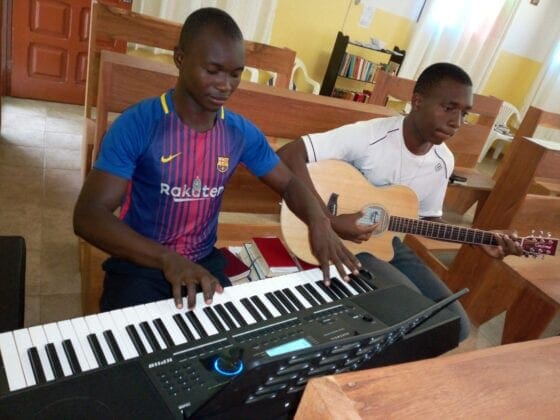
carry out open works that cannot be left easily. It requests the help of five missionaries for the following ministries:
• One for formation at the Internal Seminary stage (House of Chirrundzo). Three rural parishes in a radius of 130 kilometers depend on this house.
• A missionary for formation in the Seminary in Matola. In that way, they would be three.
• A missionary for the house of Magude. This community serves three parishes in a radius of 120 kilometers.
• A missionary for the house of Nacala. There are many works around this house: two parishes (one rural and one urban), a diocesan seminary, and a polytechnic institute. Currently there are three missionaries serving in these works, but a fourth is needed.
• An English-speaking missionary for the house in Johannesburg (South Africa). A missionary is needed to team up with two others. The work is an urban parish.
In Mozambique, the language is Portuguese.
RUSSIA
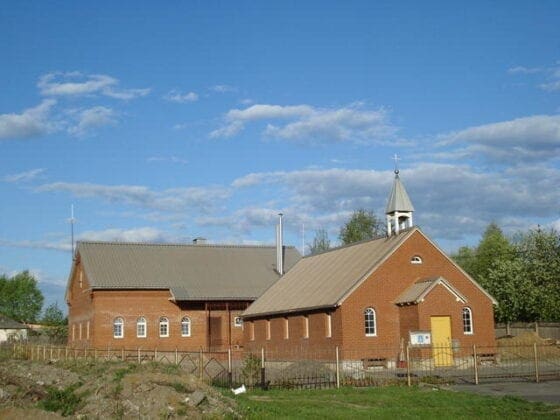 The Mission in the city of Nizhny Tagil is under the supervision of the Vice-Province of Saints Cyril and Methodius. The mission needs men who can obtain visas for Russia. The work is slow, mostly Eucharistic celebrations on Sundays in three small parishes requiring 350 kilometers of travel. There is also collaboration with the Daughters of Charity, the Association of the Miraculous Medal, and some other Vincentian-Charism inspired groups. The Province of Vietnam is preparing men to join this mission. The language of ministry is Russian.
The Mission in the city of Nizhny Tagil is under the supervision of the Vice-Province of Saints Cyril and Methodius. The mission needs men who can obtain visas for Russia. The work is slow, mostly Eucharistic celebrations on Sundays in three small parishes requiring 350 kilometers of travel. There is also collaboration with the Daughters of Charity, the Association of the Miraculous Medal, and some other Vincentian-Charism inspired groups. The Province of Vietnam is preparing men to join this mission. The language of ministry is Russian.
May Our Lady of the Miraculous Medal, Saint Vincent the Paul, and all the Saints, Blessed, and Servants of God of the Congregation of the Mission, as well as of the whole Vincentian Family, intercede for us!
Your brother in Saint Vincent,
Tomaž Mavrič, CM
Superior General

